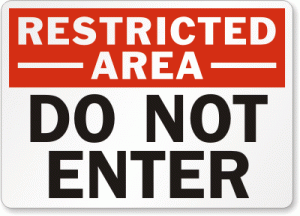38. Ritual Distraction
 Then they led Jesus from Caiaphas into the Praetorium, and it was early; and they themselves did not enter into the Praetorium so that they would not be defiled, but might eat the Passover. (John 18:28)
Then they led Jesus from Caiaphas into the Praetorium, and it was early; and they themselves did not enter into the Praetorium so that they would not be defiled, but might eat the Passover. (John 18:28)
Did you get the irony? The Jews were willing to conduct a mock court, seek to commit murder and reject the True Son of God, One Who is sinless, faultless, perfect and blameless; but they are unwilling to become unclean so as not to miss Passover? They already missed the Lamb of God, the very One they were waiting for.That’s what legalism will do to you: it seals off your heart while you cling to the rule of the Law, and you miss the Intent of the Law Giver. When you can’t see and feel the heart behind the Law, if your heart is not included in your obedience, the heart will wither and die while you blindly cling to the rules and regulations that your mind has accepted and your hands so willing do—yet without love, without the heart. And that’s what makes it so easy to move from the Sanhedrin to the unclean pagan courts.
The word defiled literally means stained. We are all stained by sin. The questions that arise are: Who defines the stain? Who recognizes the stain? Is there a stain of sin in your life which you are unaware because you believe your ritual has made you safe and secure? Is there some outward practice that has inoculated you against realizing that your sins killed the Christ? Is there some sacrament you perform which you think has removed the stain when it has only whitewashed it?
“Although you wash yourself with lye and use much soap, the stain of your iniquity is before Me,” declares the Lord GOD. ( Jeremiah 2:22)
So then, what removes the stain? Only the blood of the very One Who was crucified. Do you remember the old Gospel hymn? What can wash away my sin? Nothing but the blood of Jesus.
“And a certain Ananias, a man who was devout by the standard of the Law, and well spoken of by all the Jews who lived there, came to me, and standing near said to me, ‘Brother Saul, receive your sight!’ And at that very time I looked up at him. And he said, ‘The God of our fathers has appointed you to know His will and to see the Righteous One and to hear an utterance from His mouth. For you will be a witness for Him to all men of what you have seen and heard. Now why do you delay? Get up and be baptized, and wash away your sins, calling on His name.’” (Acts 22:12-16)
This is the message we have heard from Him and announce to you, that God is Light, and in Him there is no darkness at all. If we say that we have fellowship with Him and yet walk in the darkness, we lie and do not practice the truth; but if we walk in the Light as He Himself is in the Light, we have fellowship with one another, and the blood of Jesus His Son cleanses us from all sin. If we say that we have no sin, we are deceiving ourselves and the truth is not in us. If we confess our sins, He is faithful and righteous to forgive us our sins and to cleanse us from all unrighteousness. If we say that we have not sinned, we make Him a liar and His word is not in us. (1 John 1:5-10)
For years when I would read this verse it always struck me that someone would actually think he has no sin. Now I suppose there are some committed atheists who do not acknowledge their sins because they do not believe sin exists. But there are others who do acknowledge the existence of sin but say they have no sin. Are they claiming some sort of immunity? Or are they claiming some sort of fix?
It is the latter which I believe they are claiming. They trust in a system of ritual and rules to place them into what they believe is a condition of forgiveness. They may not be claiming sinless perfection; rather they believe they are protected because of their ritual practice—which although was once rooted in truth, has had the very life squeezed out of it.
Finally, there’s an attitude problem. The Jews were essentially saying: Lets get this annoyance over with and out of the way so we can get to the important stuff: Passover. After all, Jesus has only been around causing problems and stirring up the people for a couple of years; but we have been celebrating Passover for centuries. What’s a crucifixion compared to such a long standing ritual? And, Passover started out while we were in a foreign country under foreign rule, and here we are again under foreign domination. Could they have thought that Passover would provide another deliverance, this time from the Romans? Regardless, they missed the deliverance that would be accomplished by the Lamb of God, the Son of God.
For Christ our Passover also has been sacrificed. (1 Corinthians 5:7)
So, are there rules and regulations, rituals and traditions that are keeping you from seeing Jesus, your Deliverer? Or maybe it’s nothing as elaborate as that. Maybe it’s self-deception; or a counterfeit worldview. Such things are utterly devoid of grace; and grace is the only answer for deliverance from our sin.
I do not nullify the grace of God, for if righteousness comes through the Law, then Christ died needlessly. (Galatians 2:21)
For by grace you have been saved through faith; and that not of yourselves, it is the gift of God; not as a result of works, so that no one may boast. (Ephesians 2:8-9)



 Last time we looked at the nature of God and how He loved us—like a Father. We also camped on those three little words: I Love You, and how we shouldn’t hesitate saying them, because it may be too late and the privilege of bringing reconciliation or hope or joy or belonging (and a myriad of other accompanying characteristics with love) is lost.
Last time we looked at the nature of God and how He loved us—like a Father. We also camped on those three little words: I Love You, and how we shouldn’t hesitate saying them, because it may be too late and the privilege of bringing reconciliation or hope or joy or belonging (and a myriad of other accompanying characteristics with love) is lost. O how I love Your law! It is my meditation all the day. (v. 97)
O how I love Your law! It is my meditation all the day. (v. 97) For us to keep the word of the Lord requires commitment, it requires the heart as well as the mind; is that not the nature of obedience? Two verses to put this into the proper context:
For us to keep the word of the Lord requires commitment, it requires the heart as well as the mind; is that not the nature of obedience? Two verses to put this into the proper context: